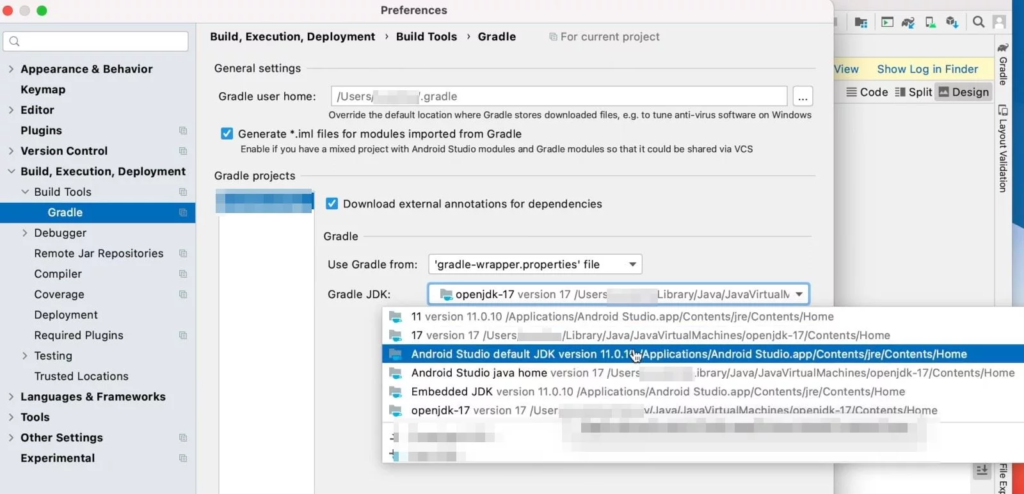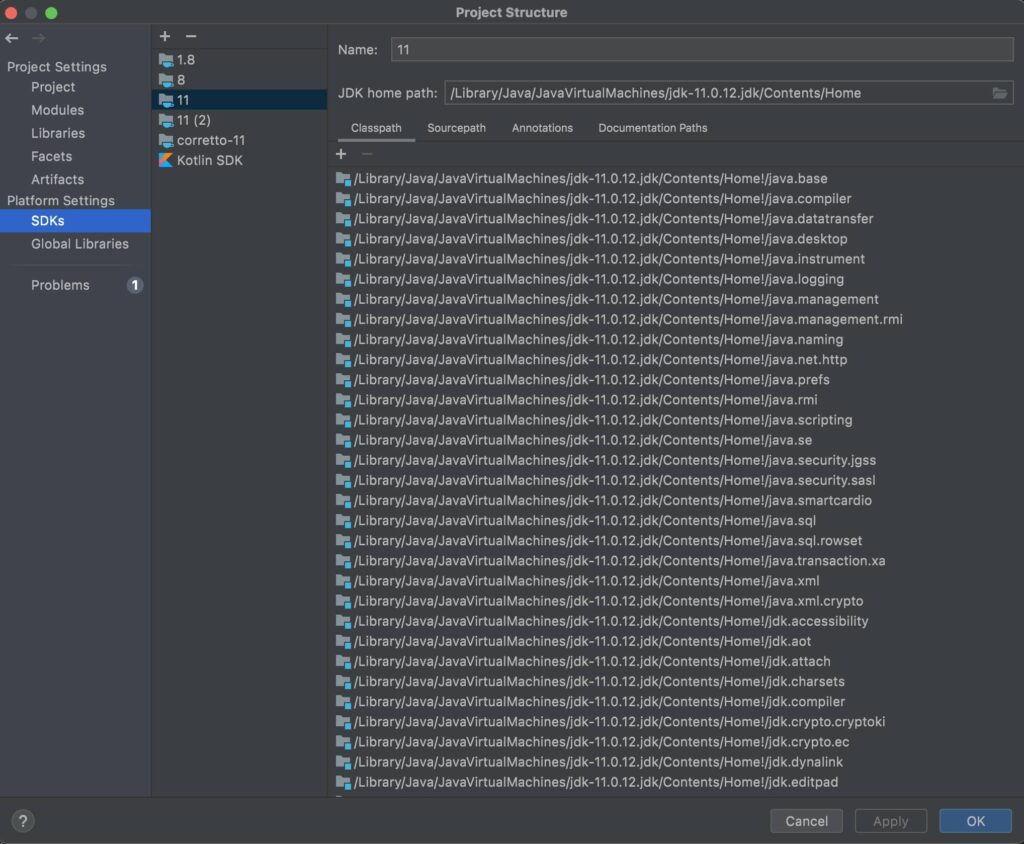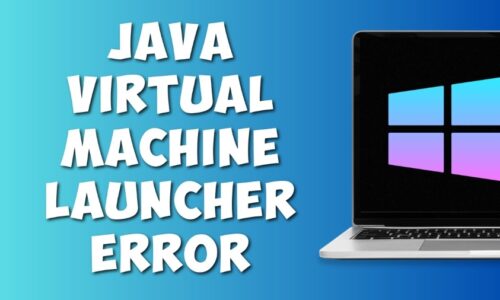Encountering the ‘Unsupported Class File Major Version 61’ Erros may be irritating for Java builders, signaling a compatibility mismatch between the Java model used to compile code and the runtime environment wherein it is finished. In this manual, we will navigate through the intricacies of this error, dropping mild on its reasons and implications. Understanding the importance of fundamental version adjustments in Java, along with Java Major Version 61, is crucial for troubleshooting efficiently. We’ll explore common reasons in the back of this error, starting from old Java environments to compatibility problems with external dependencies.
By delving into sensible answers like updating the Java Development Kit (JDK), testing compatibility, and documenting version changes, we’ll equip you with the information needed to clear up this error seamlessly. So, allow’s dive in and resolve the mysteries of the ‘Unsupported Class File Major Version 61’ Errors to empower your Java improvement adventure.
Understanding the Unsupported Class File Major Version 61 Error:
When you come upon the ‘Unsupported Class File Major Version 61’ errors in Java, it’s vital to understand the importance of essential version numbers and their impact on your Java development environment.
What is Java Major Version 61?
In Java, each release of the Java Development Kit (JDK) brings approximately modifications, improvements, and occasionally, huge updates. These updates are pondered within the major version numbers assigned to every launch. Major version 61 in particular denotes a widespread replacement in the Java environment, introducing new features, enhancements, or adjustments to the language or its runtime surroundings.
Major version 61 indicates a current milestone in Java’s evolution, potentially incorporating essential improvements that builders may also want to leverage for their tasks. However, it is essential to make sure of compatibility between the code compiled with this version and the runtime environments where it’s performed.
Common Causes of the Error:
The ‘Java Major Version 61 Error’ typically arises when there may be a mismatch between the Java model used to bring together a class document and the Java runtime model attempting to execute it. This discrepancy can arise because of diverse motives:
- Using an Older Java Runtime Environment (JRE): If you are seeking to run Java software compiled with JDK 17 (most importantly version 61) on a system with an outdated JRE (e.g., JDK 8), you’re in all likelihood to come across this error.
- Compilation with a Higher Java Version: Compiling Java supply code with a more modern JDK model (e.g., JDK 17) and then trying to execute it on a gadget with an older JRE (e.g., JDK 8) can cause compatibility troubles and trigger this Error.
- Integration with External Libraries: Incompatibility between the predominant version used to bring together the main utility and the principal version used to collect any external libraries or dependencies also can bring about this error.
Impact of Major Version Changes in Java:
Major version modifications in Java signify full-size updates that may introduce new language features, enhancements, or modifications to the runtime surroundings. These updates can have several implications:
- Compatibility Challenges: Major version updates may additionally introduce breaking modifications or deprecate certain features, probably affecting the compatibility of current codebases or libraries.
- Adoption of New Features: Developers may additionally need to conform their code to leverage new features added in the contemporary Java model. While these functions can beautify productivity and performance, they require careful consideration and checking out to make certain seamless integration with present initiatives.
- Ecosystem Alignment: Major model updates often coincide with updates to associated equipment, frameworks, and libraries within the Java environment. Ensuring compatibility across those additives is crucial for keeping the stability and functionality of Java packages.
Troubleshooting the Unsupported Class File Major Version 61 Error:
When faced with the ‘Java Major Version 61 Error’, it is essential to systematically troubleshoot the issue to identify the basic cause and put in force the suitable answer. This segment outlines the important steps involved in troubleshooting this Error.
Identifying the Affected Java Environment:
The first step in troubleshooting the ‘Java Major Version 61 Error’ is to identify the Java environment where the error occurs. This involves:
- Checking the Installed Java Version: Determine the version of the Java Development Kit (JDK) or Java Runtime Environment (JRE) established at the device wherein the error occurs. You can do that via running the java-model command within the terminal or command spark off.
- Verifying the Class File Version: Check the class report version of the Java bytecode that triggers the Error. You can do this by examining the .class file using equipment like Javap or inspecting the Error message or stack hint for clues about the class record’s version.
By identifying the Java environment and sophistication record model associated with the error, you could slender down the scope of troubleshooting and decide the compatibility issues inflicting the Error.
Understanding Compatibility Issues:
Once you have diagnosed the affected Java environment, it is critical to apprehend the compatibility issues contributing to the ‘Java Version 61 Error’. This involves:
- Compatibility Between Compiler and Runtime Versions: Ensure that the JDK model used to collect the Java source code is well-matched with the JRE version used to execute the compiled bytecode. Major model mismatches between the compiler and runtime environments can result in compatibility Errors.
- Compatibility with External Libraries and Dependencies: Consider the compatibility of any external libraries or dependencies used inside the Java challenge. Verify that those libraries are compiled with a well-matched Java model and are like-minded with the JDK and JRE versions used in your environment.
By understanding the compatibility troubles, you could identify the capability resources of the Error and determine the perfect steps to resolve it.
Analyzing Error Messages and Stack Traces:
Error messages and stack strains provide precious statistics that can assist diagnose the foundation motive of the ‘Java Major Version 61 Error’. When analyzing Errors messages and stack traces, don’t forget the subsequent:
- Interpreting Error Messages: Pay interest to the unique Errors message associated with the ‘Java Version 61 Error’. Look for clues approximately the elegance file version, the Java surroundings, and any other applicable information that can assist in pinpointing the reason for the error.
- Using Stack Traces: Examine the stack hint generated when the error takes place. Look for references to class files, libraries, or other components worried about the errors. Stack traces can assist in the execution course leading to the error and becoming aware of capacity points of failure.
By carefully studying Errors in messages and stack lines, you can gain insights into the underlying reason for the Java Major Version 61 Error’ and devise a powerful approach to deal with them.
Solutions to Fix Unsupported Class File Major Version 61 Error:
When encountering the ‘Java Major Version 61 Error’, resolving it requires implementing appropriate answers to address compatibility problems among distinctive Java components. This segment outlines numerous answers to restore the error and ensure certain seamless execution of your Java packages.
Updating Java Development Kit (JDK):
Ensure you have the trendy model of the Java Development Kit (JDK) hooked up in your device. Follow these steps to replace your JDK:
- Download the Latest JDK Version: Visit the respectable Java website (https://www.Oracle.Com/java/technologies/javase-jdk15-downloads.Html) and download the brand new JDK version compatible with your working device.
- Install the JDK: Run the downloaded installer and comply with the on-screen commands to install the JDK on your machine.
- Set Up JDK Environment Variables: After installing the JDK, install the JAVA_HOME environment variable to point to the JDK setup listing. Additionally, replace the PATH variable to encompass the JDK’s bin listing.
By updating your JDK to the cutting-edge version, you make sure of compatibility with the magnificence files compiled with a foremost model 61, resolving the ‘Java Version 61 Error’.
Updating Java Runtime Environment (JRE):
Ensure that the Java Runtime Environment (JRE) mounted on your machine fits the JDK version used to assemble the Java bytecode. Follow the steps to replace your JRE:
- Download the Latest JRE Version: Visit the reputable Java internet site (https://www.Oracle.Com/java/technology/javase-jre8-downloads.Html) and download the trendy JRE model well suited along with your working device.
- Install the JRE: Run the downloaded installer and follow the on-display commands to put in the JRE for your system.
By updating your JRE to match the JDK model, you ensure compatibility between the compiler and runtime environments, stopping the ‘Java Major Version 61 Error’.
Upgrading Build Tools and IDEs:
Ensure that your construct tools (e.g., Maven, Gradle) and Integrated Development Environments (IDEs) (e.g., Eclipse, IntelliJ IDEA) are updated. Follow the steps to improve your construct tools and IDEs:
- Check for Updates: Launch your construct device or IDE and test for available updates through the integrated update mechanism or with the aid of traveling to the legitimate website of the respective tool or IDE.
- Install Updates: If updates are to be had, comply with the on-display commands to download and set up them.
By upgrading your build tools and IDEs, you ensure compatibility with today’s JDK and JRE variations, preventing compatibility problems that can cause the ‘Java Version 61 Error’.
Rebuilding or Recompiling the Affected Java Project:
If you have updated your JDK and/or JRE or made modifications in your mission configuration, you may need to rebuild or recompile the affected Java task. Follow these steps to rebuild or recompile your task:
- Clean the Project: Use the clean command supplied through your construct tool (e.g., mvn clean for Maven initiatives) to remove any formerly compiled artifacts and dependencies.
- Rebuild the Project: Compile the Java source code using the updated JDK version and rebuild the assignment using your construct tool (e.g., mvn deploy for Maven projects).
By rebuilding or recompiling the undertaking with the updated JDK model, you ensure that the bytecode is compatible with the runtime environment, resolving the ‘Java Major Version 61 Error’.
Handling Compatibility Issues with External Libraries:
If the ‘Unsupported Class File Major Version 61’ errors are a result of compatibility issues with external libraries or dependencies, recollect the subsequent strategies to resolve it:
- Update External Libraries: Check if updated versions of the outside libraries are to be had which can be compiled with a like-minded Java version. Update your assignment’s dependencies to use those more modern variations.
- Use Compatible Alternatives: If updating external libraries isn’t always feasible, keep in mind the usage of opportunity libraries or dependencies that might be well suited to the most important model 61.
By addressing compatibility problems with outside libraries, you ensure that your Java challenge can be compiled and achieved without encountering the ‘Java Version 61 Error.’
Best Practices and Tips for Preventing Future Errors:
To decrease the prevalence of the ‘Java Major Version 61 Error’ and similar compatibility troubles on your Java tasks, it is essential to comply with high-quality practices and adopt proactive strategies. Here are a few encouraged practices to prevent destiny errors:
Regularly Updating Java Environment Components:
- Stay Current with Java Updates: Regularly test for updates to the Java Development Kit (JDK) and Java Runtime Environment (JRE) and set up them directly. This ensures that you have access to modern-day functions, bug fixes, and compatibility upgrades.
- Automate Update Checks: Set up automatic mechanisms to periodically test for updates to Java additives and receive notifications when new updates are available. This allows you to stay informed about the contemporary trends within the Java ecosystem.
Testing Compatibility Before Deploying Updates:
- Conduct Compatibility Testing: Before deploying updates or making adjustments to your Java tasks, perform thorough compatibility testing. Test your packages in diverse environments, which include different JDK and JRE versions, to discover and deal with compatibility problems proactively.
- Utilize Compatibility Testing Tools: Use compatibility testing gear and frameworks to automate the technique of testing your Java programs across special Java versions and environments. These gears can assist in streamlining the checking-out system and ensure complete coverage.
Documenting Changes in Java Versions and Dependencies:
- Maintain Detailed Documentation: Keep complete documentation of the Java versions used for your initiatives, together with JDK and JRE versions, as well as any external dependencies and libraries. Document any modifications or updates made to those components through the years.
- Track Version Compatibility: Document the compatibility necessities of your Java applications regarding JDK and JRE versions, in addition to compatibility constraints imposed via outside dependencies. Maintain a version compatibility matrix to track compatibility relationships efficiently.
Monitoring Community Forums and Bug Trackers for Known Issues:
- Stay Engaged with the Java Community: Participate actively in Java community forums, discussion organizations, and online groups. Stay knowledgeable about cutting-edge trends, and best practices, and acknowledge troubles related to Java versioning and compatibility.
- Monitor Bug Trackers: Keep an eye on malicious program trackers and trouble repositories maintained via Java platform developers, open-supply projects, and third-party libraries. Stay up to date on pronounced compatibility issues, computer virus fixes, and workarounds supplied by using the network.
Additional Tips:
- Check Third-Party Libraries: Ensure that any third-party libraries or dependencies used in your undertaking are like-minded with Java model 61. Check the documentation or launch notes of those libraries for statistics on supported Java versions and any required updates.
- Use Java Version Managers: Consider the usage of Java version management gear like SDKMAN! Or jEnv to control a couple of JDK versions in your gadget. This equipment makes it less complicated to replace one-of-a-kind Java variations for testing and improvement functions.
- Utilize Docker Containers: Docker containers can offer steady surroundings for jogging Java packages throughout one-of-a-kind systems. Consider containerizing your Java packages to ensure consistent conduct and mitigate compatibility issues related to Java versions.
- Monitor Build Logs: Pay interest to construct logs and compiler warnings for any symptoms of compatibility troubles or deprecated capabilities. Addressing those warnings early on can prevent potential Errors down the line.
- Leverage Continuous Integration (CI): Integrate your Java projects with a CI/CD pipeline to automate checking out and deployment strategies. Use CI tools like Jenkins or Travis CI to ensure compatibility throughout special Java environments and locate issues early in the improvement cycle.
Conclusion:
Navigating through the complexities of the ‘Unsupported Class File Major Version 61‘ Errors may be daunting, however with the insights gained from this guide, you are more geared up to address it head-on. With expertise in the nuances of Java versioning and compatibility, you have learned to perceive potential causes of error and enforce powerful solutions. From updating your Java surroundings components to trying out compatibility and documenting model adjustments, you now have a toolkit to prevent future occurrences of this error and make certain smoother Java improvement studies. Remember, staying proactive and engaged with the Java community is fundamental to staying abreast of cutting-edge updates, exceptional practices, and solutions.
With these techniques in hand, you’re nicely prepared to conquer compatibility-demanding situations and navigate the ever-evolving panorama of Java development. So, embody the expertise gained and retained to thrive in your Java coding endeavors. Happy coding!
FAQs:
Q1. What do the ‘Unsupported Class File Major Version 61’ errors mean?
Ans: The ‘Unsupported Class File Major Version 61’ error indicates that the Java runtime environment does not support the most important model of the elegance record being done. Major model 61 corresponds to a particular Java launch, and encountering this Error indicates a compatibility issue between the Java model used to assemble the code and the runtime environment in which it’s completed.
Q2. How do I decide the Java model causing the error?
Ans: You can determine the Java model causing the error with the aid of checking the installed Java Development Kit (JDK) or Java Runtime Environment (JRE) model in the system in which the error takes place. Additionally, examining the class report’s foremost version or studying Errors in messages and stack lines can provide insights into the Java model concerned.
Q3. What are the unusual causes of the ‘Unsupported Class File Major Version 61’ errors?
Ans: Common reasons for this error consist of using a previous Java runtime environment (JRE) incompatible with the class file’s foremost model, compiling code with a more recent Java Development Kit (JDK) model than the runtime surroundings, and compatibility problems with outside libraries or dependencies.
Q4. How can I fix the ‘Java Major Version 61 Error’?
Ans: To repair the error, you can replace your Java Development Kit (JDK) and Java Runtime Environment (JRE) to fit the class file’s most important model, improve construct gear and IDEs to ensure compatibility, rebuild or recompile the affected Java mission with the appropriate JDK version, and address compatibility issues with external libraries or dependencies.
Q5. Are there any exceptional practices to save you destiny occurrences of this error?
Ans: Best practices to save you destiny occurrences of the error consist of often updating Java surroundings additives, testing compatibility earlier than deploying updates, documenting modifications in Java variations and dependencies, monitoring community forums and worm trackers for recognized issues, and implementing additional pointers inclusive of checking third-party libraries and leveraging Docker containers for consistency.
READ MORE: Troubleshooting Java Virtual Machine Launcher Errors: Causes and Solutions








